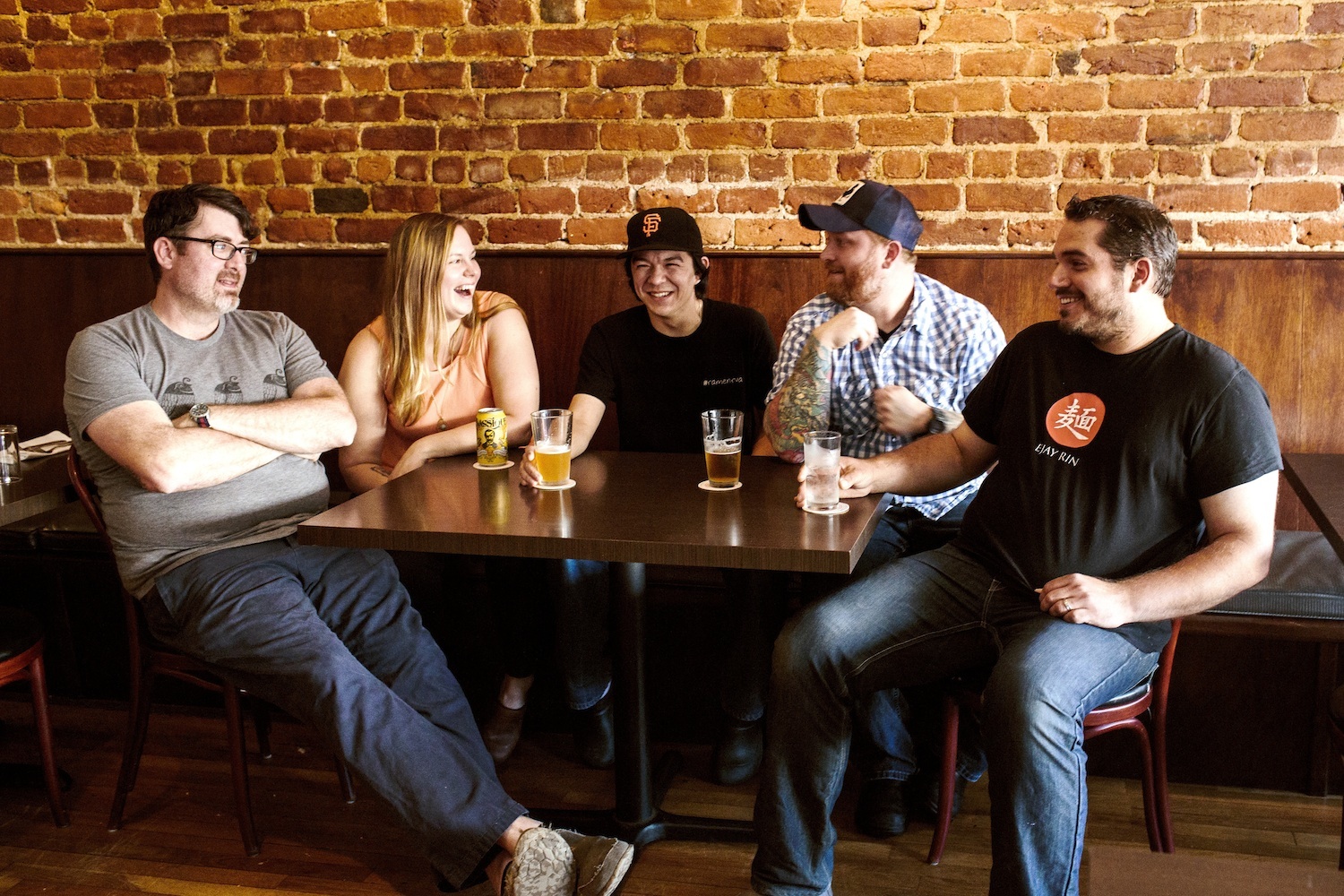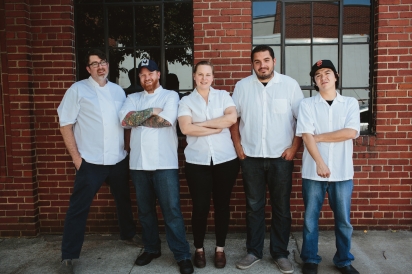Strength in Numbers: Richmond Chefs Working Together
It started, as great ideas often do, over a good meal. In the fall of 2011, Kendra Murden and Lee Gregory decided to throw a Sunday potluck at their restaurant, The Roosevelt, for their food industry colleagues. Dale Reitzer (Acacia), Tim Bereika (Secco, Urban Tavern) and other local chefs contributed dishes. Wine and beer flowed, and financial donations were collected to support Tricycle Gardens, a local nonprofit.
The fall evening was bustling, the room packed with chefs, spouses and kids sharing food and lively conversation. A long table ran down the center with potluck dishes surrounding a whole suckling pig that Gregory had prepared earlier that day. The children were initially nonplussed by the pig, but quickly got over it when they discovered fellow schoolmates to play with. By the end of the evening, colleagues who had rarely met were connecting over fresh flavors and ideas.
What grew into a series of nine “Shindigs,” as the evenings were called, changed the face of the Richmond restaurant scene, shifting it from competitive to collaborative. That shift is what local chefs credit with fostering the burst of creativity and growth that put Richmond on the national food radar. “Working together is a chance to encourage and grow,” says Lee Gregory. “Richmond is too small a world not to make these efforts.”
The Shindig was born out of the realization that many chefs, bartenders and restaurateurs simply didn’t know each other at a personal level.
“We talked about how after we get off work we don’t get to hang out with each other,” Murden says. Gregory agrees, “I genuinely like everyone, and it’s harder to meet people as you get older and have kids, especially in an industry like this.”
From Friendships to Partnerships
Local restaurant collaborations aren’t just for pop-ups. The partnership of Lee Gregory and Joe Sparatta of Heritage illustrates how friendships between established chefs running popular restaurants can blossom into new businesses. Both Gregory and Sparatta had been interested in exploring new ventures on their own. During conversations, they agreed that what the Southside lacked was a good restaurant that catered to families and foodies alike. The two decided to partner up.
“I like working with Joe,” Gregory says. “And I thought this would be a great way for us to accomplish what we were talking about without having to leave Roosevelt or Heritage.”
Chefs working together to create new ventures may be the new future of the Richmond restaurant scene, particularly when someone as acclaimed as Owen Lane of The Magpie takes over the kitchen at Estilo, blending multiple sets of restaurants.
Last year, Joe Sparatta pushed local collaborations a level higher. On Monday nights, he began opening his restaurant, Heritage, for a team of six other chefs who were each working on their own restaurant ideas. At the dinners, the chefs worked together in the kitchen, trading cooking, prep and expediting roles for each other’s menus.
Sparatta’s intent was twofold. First, to give aspiring chefs a chance to test their concepts with eager and experienced diners. Second, to afford chefs the opportunity to see their peers at work. “We’re not necessarily exposed to each other’s true form and technique,” Sparatta says. “This gave them a chance to throw down and learn from each other.”
The Future of Co-opetition
In the four years following that first Shindig potluck, friendships and collaborations have shifted Richmond from a town with good food to a town that is winning national and international recognition for its restaurants.
“Competition isn’t exactly what you think it is,” says Kendra Murden of The Roosevelt. “Strength in numbers comes through and helps everybody.” Tim Bereika also credits the evolution to a change in perspective among new chefs, adding there is “quite a community in terms of collaboration and working together. Our perspective on how we cook and succeed is about learning from each other.”
Richmond chefs are proving that friendly cooperation and business competition aren’t antithetical. In fact, they feed on each other to create a sense of “co-opetition,” which builds a vibrant and comprehensive restaurant scene. Restaurant owners and chefs certainly reap profits from this new form of working together, and there’s no argument over who the real winners are in this new atmosphere: Richmond’s happy diners.






